Uncheck Armament… Is a Concern in Sudan - By Osman Mirghani, Asharq Al-Awsat
The proliferation of arms has returned to the forefront in Sudan once again. Shots were fired following an altercation between a man and a group affiliated with an armed faction at the entrance of Atbara City Hospital, and two people were killed and two others were injured.
Although the authorities have sought to restore calm, presenting the incident as a personal dispute with no political or military motives, it has sparked widespread concern and anger among the public. The outrage compelled the “Joint Force” (factions allied with the army) to quickly issue a statement denying “both direct and indirect” involvement in the incident. However, statements were not enough to reassure the people or quell their anger and anxiety; the Sudanese Doctors’ Network cautioned that the incident was not the first of its kind and that it would not be the last.
Two days earlier, news of panic and chaos in Bashair Hospital in southern Khartoum had gone viral on social media: after a Joint Forces militant (reportedly affiliated with Darfur Governor Minni Arko Minnawi’s faction) had threatened to blow up the facility because one of their fighters had died before receiving treatment.
Havoc and panic also ravaged the Al-Salha area south of Omdurman: local schools were evacuated after gunshots were heard in their vicinity, and a large number of forces were dispatched to the area by the Committee of Security Control. The authorities made clear that they had begun working on a campaign aimed at dismantling criminal hideouts, combating informal housing, and addressing illegal foreign presence.
The ubiquity of arms in Sudan following the war amounts to a ticking time bomb that undermines the country’s national security, unity, and social fabric.
The problem is not limited to the armed movements that have multiplied at an alarming pace. The arms held by civilians and organized criminal groups also undermine security and leave citizens hostage to fear, suspicion, and chance.
Despite the army leadership’s directives to clear the capital of arms, compliance has been partial. Cells affiliated to armed movements have maintained a presence in Khartoum and other major cities; residents regularly see them wandering the streets with their arms in hand and even stashing their arms in their homes in residential neighborhoods.
As the war expands, citizens’ complaints about security and criminality intensify, armed shows of force dominance in streets, markets, and hospitals have become part of their daily lives, deepening divisions and hindering efforts to establish security.
This state of affairs has become untenable. Addressing it demands a national emergency plan for the disarmament and reintegration of armed factions through the expedited implementation of the Juba Peace Agreement. The signatory factions have keenly sought to safeguard their shares of power, and they should be similarly compelled to implement the security and integration arrangements that they have committed to. Every armed group, old and new, must hand over its arms; otherwise, the country will devolve into fragmented zones of lawless influence or an arena devoid of security.
The longer the war drags on, the more entrenched the spread of weapons becomes and the harder it will be to collect them, portending new cycles of violence and chaos. Delaying the implementation of the security clauses in the Juba Agreement has already had disastrous repercussions, just the failure to address the Rapid Support Forces problem has, among other factors, led to the crisis we face today. Further delay in addressing the weapons issue would significantly increase the cost of rebuilding state institutions and complicate this effort.
We must learn from our own history and the experiences of many other nations: no country can ensure stability when illicit arms proliferate, as this leads to the proliferation of authorities, with the state losing control and violence becoming the arbiter of disputes and competition for influence and wealth. Even worse, children would grow up in a world where this violence is normalized- a peril for the country’s future that undercuts youths’ faith in civility and the rule of law.
Unchecked armament does not only kill people; it also kills the very notion of statehood. When the rule of law recedes and the line between combatant and criminal disappears, security becomes an illusion and cities become hotbeds of fear and extortion.
That is why a state monopoly over armament must be the cornerstone of any project for peace and stability.
Sudan has paid a heavy price for the policy of “buying peace” through appeasement. Offering political positions as war has failed, and this destructive approach cannot continue.
The current devastating war has proved beyond any doubt that armament must be monopolized by the state and placed under its full control. In the short to medium term, the authorities must focus on building a large, unified, strong, and professional national army capable of protecting the country from the threats that have come out to the open in many places, both within and beyond Sudan's borders.
Latest News
-
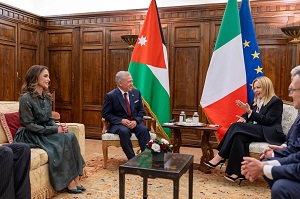 King, Italy PM call for ensuring implementation of Gaza agreement
King, Italy PM call for ensuring implementation of Gaza agreement
-
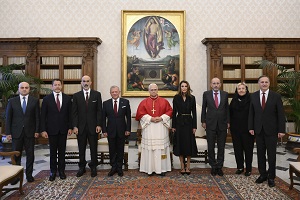 King, Queen meet with Pope Leo XIV
King, Queen meet with Pope Leo XIV
-
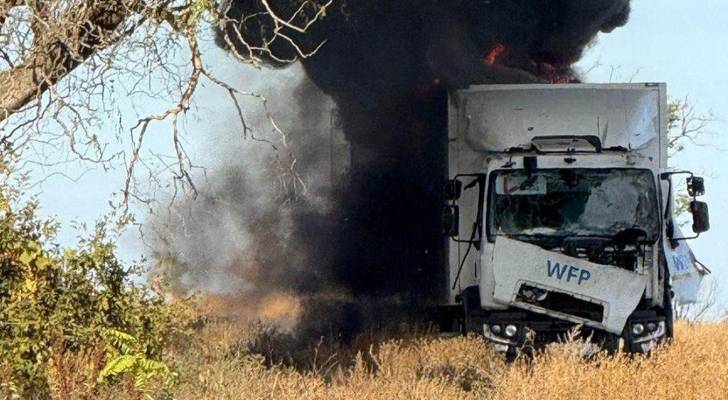 Russia accused of targeting UN aid convoy in southern Ukraine’s Kherson region
Russia accused of targeting UN aid convoy in southern Ukraine’s Kherson region
-
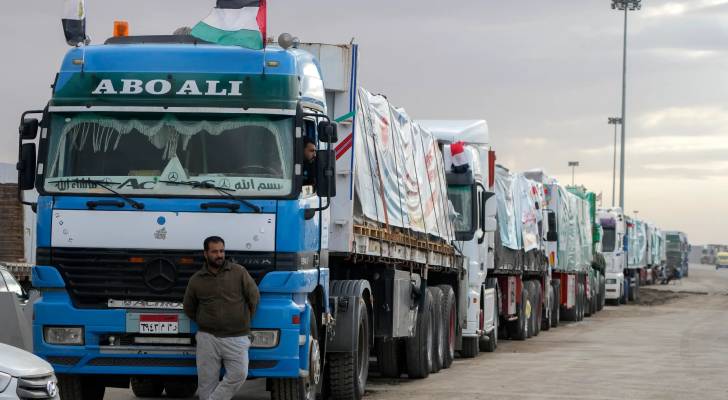 'Israel' won’t reopen Rafah crossing over Hamas’s failure to return captives’ bodies: Hebrew media
'Israel' won’t reopen Rafah crossing over Hamas’s failure to return captives’ bodies: Hebrew media
-
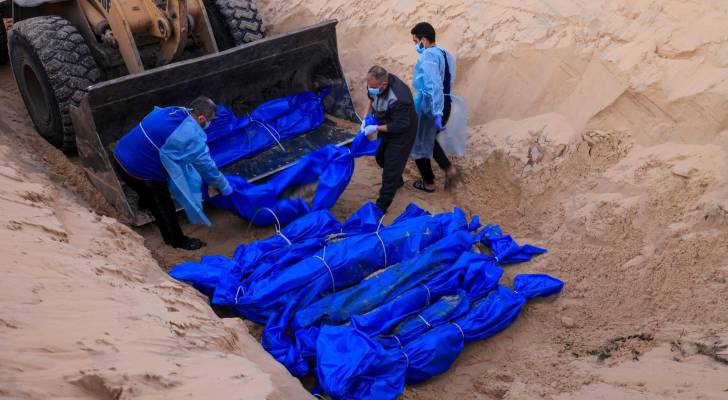 'Israel' returns 45 Palestinian bodies to Gaza as past organ theft allegations resurface
'Israel' returns 45 Palestinian bodies to Gaza as past organ theft allegations resurface